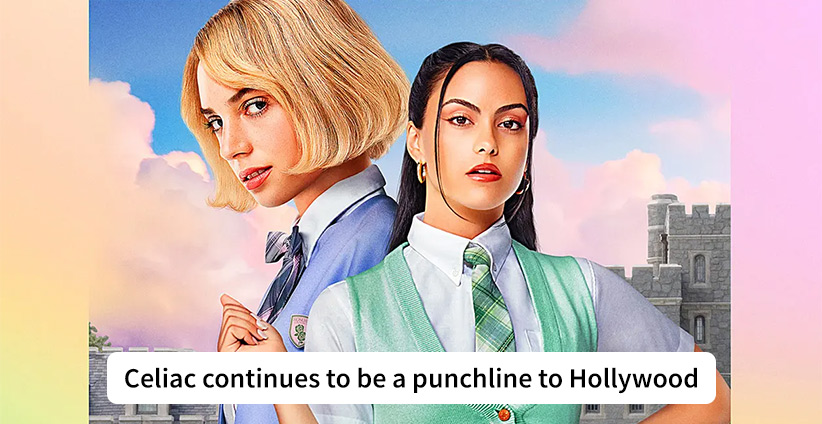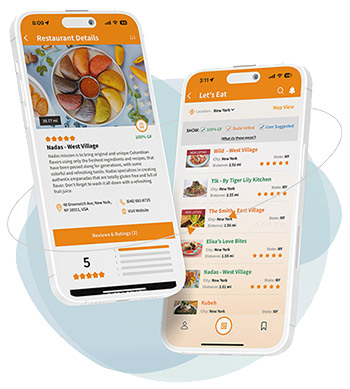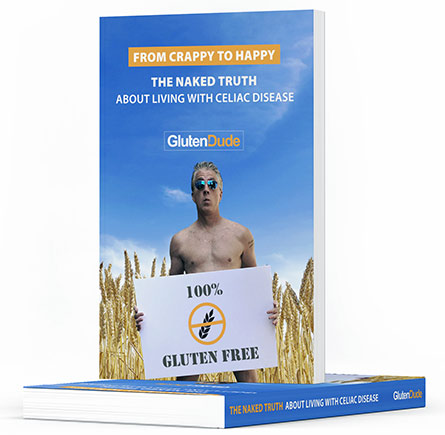Q: What do the following 3 items have in common?
A: They are a mere sample of the tons of emails I receive about kids with celiac disease getting bullied. And why do kids with celiac disease get bullied, besides the fact the country is full of self-absorbed a**holes? Because the media, and Hollywood especially, has given people license to do so. I have written about a bunch of episodes over the years. Most of them poke fun at being gluten-free. Rarely do they mention celiac disease. Until now.
There is a new teen flick out on Netflix called “Do Revenge”. A fellow celiac sent me an email and told me to watch the following scene:
Did you know there are 89 diseases with NO CURE and celiac disease is just one of them? So my questions to the director are these:
– With so many jokes you could have used in this scene, why use a disease? Any disease?
– Why did you specifically choose celiac disease??
I know the answer> Cause we’re a punchline folks. That’s all we are to Hollywood. We’re not people with a serious autoimmune disease whose only treatment is an ungodly strict diet. Our disease is a joke. And because of these “jokes”, kids around the world continue to be bullied. I’ve been writing this same shit for 10 year now and I’m officially out of words. So I’ll use the words of the person who contacted me about the film. This is what she sent to director and screenwriter Jennifer Kaytin Robinson:
Celiac disease is a lifelong autoimmune disease which is categorized by the immune system attacking the lining of the small intestine, mainly hair-like projections called villi, when 1/64th of a teaspoon or more of gluten is consumed. Villi are essential for nutrient absorption and proper digestion. Personally, despite being diligent with my gluten free diet, I am still not at the level of health I once was. I have lost many friends who talked behind my back about how inconvenient my dietary restrictions are for them, how I might be faking or embellishing symptoms, or outright excluded from events for being a burden.
I have been through periods where I couldn’t imagining continuing to live while feeling as sick as I felt during the time I was diagnosed, and I truly had no support system outside of my family. The only ‘treatment’ for celiac is a life-long, strict gluten free diet, which is often the butt of jokes. Because “Do Revenge” is on Netflix and will be widely watched, I felt the need to reach out and communicate how disappointing, triggering and upsetting this line was for me and I’m sure for the celiac community as a whole. I strongly believed it should be removed for the well-being of the celiac community and for the risk of further misrepresentation of the disease which contributes to a lack of education among the healthy community and in turn, a lack of support. Thank you for your time.
This is perfect so I won’t try to improve on it. All I’d probably do is add some unnecessary flavorful language.
But I would love it if as many of you could contact Jennifer Kaytin Robinson and let her know how you feel and ask her to remove the scene. You can reach her via the following:
Instagram: https://www.instagram.com/jennkaytin/
Twitter: https://mobile.twitter.com/jennkaytin
Thanks in advance.
PS. I love Maya Hawke so this is an extra bummer.






Someone just died of a cross contamination allergic reaction to milk. When will they wake up? Do they have to be sued before they stop? How did Hollywood stop using disabled people as a punchline? I remember the 80s when it was still “funny” to make fun of strange walks or using the word cr—–.
https://www.bbc.com/news/uk-england-wiltshire-62808456
It’s not the greatest ever, but in the UK there is bread that is safe to eat for a controlled amount of money, to prevent the poor from being totally cut off when they start out with Celiac diagnosis.
Such a thing is only dreamed about in the US. Even such a small thing as this.
As someone who has done a lot of “weight loss” diets (spoiler, they don’t work, don’t bother), gluten free is way harder than Paleo or Vegan. And avoiding processed starch while being gluten free is even harder. As much as I want to yell shut up at those who say gluten free is unhealthy and only the sick should do it… I can’t. I agree that the frankenstarch products are bad to eat.
Why can’t we just get respectful good food? Why is that such an issue for everyone else? They don’t have to be careful. I / we do.
As far as the idiotic scene in this show, it’s the kind of thing kids who bully would say. I’d like to see whether it turned out that the truly selfish one was exposed and apologized. But somehow I think it may not.
A lot of kids shows have themes showing what not to do and then resolving it. Not having Netflix I can’t see whether that happened.
I just realized she died in 2018. I really hate how the news doesn’t bother to give proper dates anymore. Anyway, even though she didn’t “just” die, that’s still an absurd reason to die and shouldn’t have happened at all.
This is a topic where I realize I am often outside the view of many other celiacs, and I don’t mean any of this confrontationally since I love your website GlutenDude, but I feel like on this front we do ourselves a disservice when we can’t laugh at our illness, and when we insist other people be fully aware of all the challenges we face and not find humor in a show like this. Obviously it is hard being a celiac patient. I totally get the challenges (I’ve personally been struggling to keep my health at a decent level and no matter how hard I follow the gluten free diet I can’t seem to stop getting glutened—-which has a powerful impact on a range of things).
It is also socially isolating to have celiac disease. I think one truth that celiacs realize right away is ‘breaking bread’ is a real social glue. Heck my religion is wheat based, and not only is there social isolation but there is profound sense of disconnection from spirituality for some people (I’m not trying to advance any particular view but for me communion was always been a central part of my religious experience, and it has been hard to safely experience that). Then there are issues of bullying, which I am sure is a problem for children because kids tend to notice differences around food a lot. So I think actual meanness and carelessness with celiac in the real world, is something worth pushing back against (I would say especially carelessness because so many of us our affected by the careless following of cross-contamination prevention in places like super markets for example). Bottom line, I think if you have celiac you feel like society is not structured or meant for you, and I think this is isolating, can lead to bitterness and a lot of pain that people often dismiss because on the surface it appears like a not so terrible disease (the truth is it is a terrible disease but conveying that to people can be an enormous challenge).
So I think we get very sensitive about humor, and I can understand that. But I love comedy. And I love being able to make fun of not just my celiac disease but my crohns, and I love when other people make fun of it, even make fun of me, because it cuts through tension and it reminds me to enjoy life, laugh at the rediculousness of life. I also don’t want to stifle other peoples creativity. Someone writing a show isn’t going to have my experience with celiac disease, they may, for example, only have been on the other side and felt frustration (for example with a customer with celiac disease). Just as our frustration with the world can be very real, we also have to appreciate its stressful and taxing for people who are trying to understand us and make accommodations (and they need to let off tension too). My wife is a waitress and she understands the celiac issues more than anyone, but it is also an enormous challenge for her when she encounters it at her work (again in part because the world is not structured for celiacs).
I also think if we become killjoys about this stuff, and go after peoples entertainment, we make it less likely they will be sympathetic to us when we have genuine requests to society (things like better labels, better enforcement of labels, better vetting of medications for cross contamination, etc). Also these kinds of shows, if handled in a positive and more optimistic way, are actually a perfect opportunity to spread awareness and educate people. We can do that without making people feel guilty about liking a joke or liking a show, and still use the program as a launching point for talking about pressing issues the celiac community faces, so that we get substantive changes that materially improve the lives of people with celiac.
I really appreciate the thought out comment Brendan. Seriously. And I get it. I laugh at our insidious disease all the time. But because gluten-free has been such a punch line for so long, I’m tired of the jokes and I think it does our disease at disservice.
Wow, my daughter (who has celiac) just had a falling out with a long time friend who decided to change the pre-prom dinner last minute this past spring. Wonder were she got the idea to be so unfeeling….